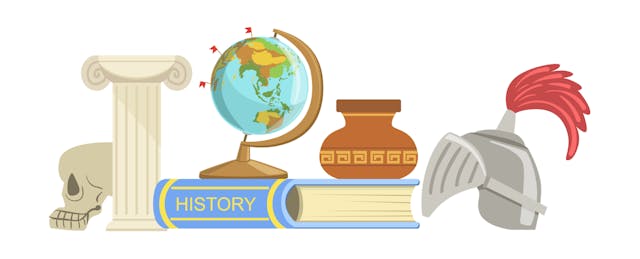The AskHistorians section of Reddit has become a popular forum for history buffs to share their knowledge in a strictly moderated environment. The goal is to celebrate the past, and the group’s rules are clear: No discussion of current events (defined as less than 20 years old) and “no soapboxing” or expressing political views.
Decidedly current political events punctured that bubble last week, however, when the moderators broke their own guidelines to advocate against President Donald Trump’s proposal to strip all funding from the National Endowment for the Humanities and the National Endowment for the Arts (which now receive about $148 million per year each).
“NEH funding indirectly supports what you're reading right now,” the moderators argued in a post to the group, which has more than half a million subscribers. “We don't get political for a particular candidate, a particular party, or a particular point of view. We get political when good history matters. If you’re American, we’re asking you to call your Congressmen and Congresswomen to support funding for the NEA and NEH.”
James Brooks, one of the moderators, said in an interview with EdSurge that many of the 34 volunteer moderators, and a vast number of active participants, depend on grants from the NEH and NEA for their livelihoods. “Because their jobs are partially supported, their lifestyles are partially supported,” allowing them the time to volunteer answering questions on Reddit. “If they didn’t have that support, they would be out looking for jobs.”
Not surprisingly (this is the internet after all), many participants objected to the activism, and the group’s position.
“Having free time to comment on Reddit isn’t a good reason to demand already strapped middle class taxpayers to pony up for this,” argued one user. “Gobs and gobs of historical work happens regardless of these programs. And if the amounts are so tiny, then it can easily be funded through private foundations.”
Another user said the group “was once a bastion of respectability and I just lost all my respect for it,” adding: “Your integrity was based on being impartial, but no longer.”
But the moderators see Trump’s proposed cuts as an existential threat to their discipline. As one moderator wrote: “You are welcome to your beliefs, but to be sure, from where we stand, you aren’t saying that you are against public funding, but in essence arguing that the Arts and Humanities are a luxury that those who can’t afford to support have no expectation of enjoying.”
The American Historical Association has taken a stand against Trump’s budget blueprint as well. “Because so much is at stake, the AHA asks our members to contact their representatives in Congress as soon as possible to register strong objections to the massive cuts to programs essential to the cultivation of our national heritage and civic culture such as the NEH,” says a post on its website.
Despite the anxious tone of these groups, Brooks, who in the past was president of a historical society in Kodiak, Ala., says that as a lover of history he realizes that “it’s not the most divisive time in American history, and it’s not the most dangerous time in American history.” After all, he added, the country has been through a Civil War. “So we can put this in context,” he said. “We’re not quite shooting at each other yet.”


